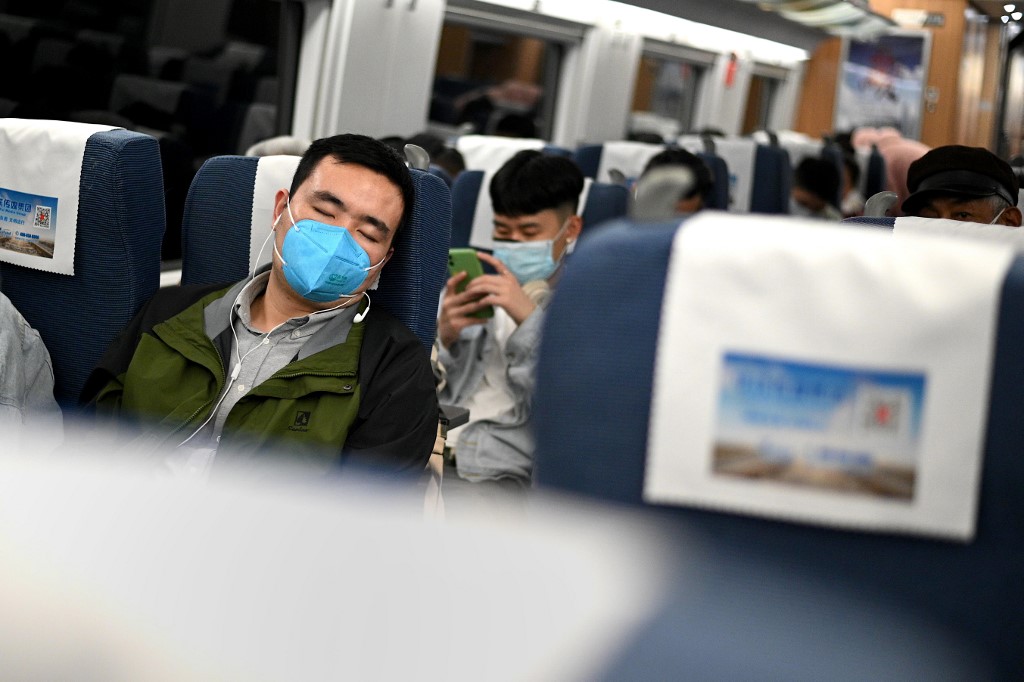BEIJING: China lifted tough restrictions on the province at the epicentre of the coronavirus outbreak on Wednesday after a months-long lockdown as the country reported no new domestic cases.
But there were another 47 imported infections from overseas, the National Health Commission said, as the number of cases brought into the country continued to swell.
In total, 474 imported infections have been diagnosed in China – mostly Chinese nationals returning home according to the foreign ministry.
Four more people died, health officials said Wednesday, three in central Hubei province where the virus first emerged late last year.
China announced on Tuesday that the lockdown would be lifted on more than 50 million people in Hubei, with residents now allowed to leave if healthy, with some airports and train stations opening.
The city of Wuhan – the initial epicentre of the outbreak – will allow residents to leave from April 8.
Hubei ordered the shutdown in January but had been gradually easing rules and permitting people to move about within the province and return to work over recent days.
Schools remain closed, however.
There have been more than 81,200 cases of COVID-19 in China and 3,281 deaths from the virus.
New cases have slowed dramatically over the last month.
But as nations globally struggle to contain the pandemic, surging numbers of imported cases in China are fuelling anxiety about a possible second wave of infections just as the country seems to be bringing its outbreak under control.
Many cities have brought in tough rules to quarantine arrivals, and all Beijing-bound international flights are being diverted to other urban centres where passengers are screened for the virus.
Second wave
If after the lockdown is lifted there is no second wave, that will give hope worldwide at a time when the EU and much of the US is in lockdown, writes Jeff Pao. If, however, the China lockdown lift is followed by a second wave of infections, then the efficacy of maintaining current shutdowns across the world is likely to be questioned.
The Hubei/Wuhan decision was announced after the Leading Group of the Communist Party of China’s Central Committee for Novel Coronavirus Prevention and Control, chaired by Premier Li Keqiang, met Monday and determined that the transmission of the coronavirus in Wuhan had basically been cut off – although a few individual cases still remained, with a potential risk of some local outbreaks.
The group in its meeting said the next battle would be the prevention of imported cases and avoidance of any rebound of local cases. He said local governments should push the resumption of operations and production in companies in an orderly fashion.
As the epidemic has become a pandemic, a strategy of preventing the import of the disease from abroad and avoiding a relapse at home should be taken to maintain the gains in the fight against the epidemic, the group said.
China will safeguard its “precious achievements” in the anti-epidemic battle, provide help and resources to other countries as possible, help foreign companies source anti-epidemic materials and ensure the quality of these products, the group’s statement said.
The group urged the cancellation of restrictions that obstruct the resumption of society’s normal operation. It called for the resumption of public transport and of transport connecting rural and urban areas. The operation of logistic parks, freight stations and express delivery points should be fully resumed, it said.
On January 23, the Wuhan government announced it was shutting down its transport system and forbade people from entering or leaving the city. Within two days, all cities in Hubei also locked down. About 5 million people managed to leave the province before the lockdown.
Over the past two months, more than 50,000 infections were recorded in Wuhan and more than 2,500 people died in the city. Hubei province said it had recorded no new cases since March 18, except one case on Monday.
Two weeks ago, netizens found that airline companies started allowing people to book tickets departing Hubei from late March.
























